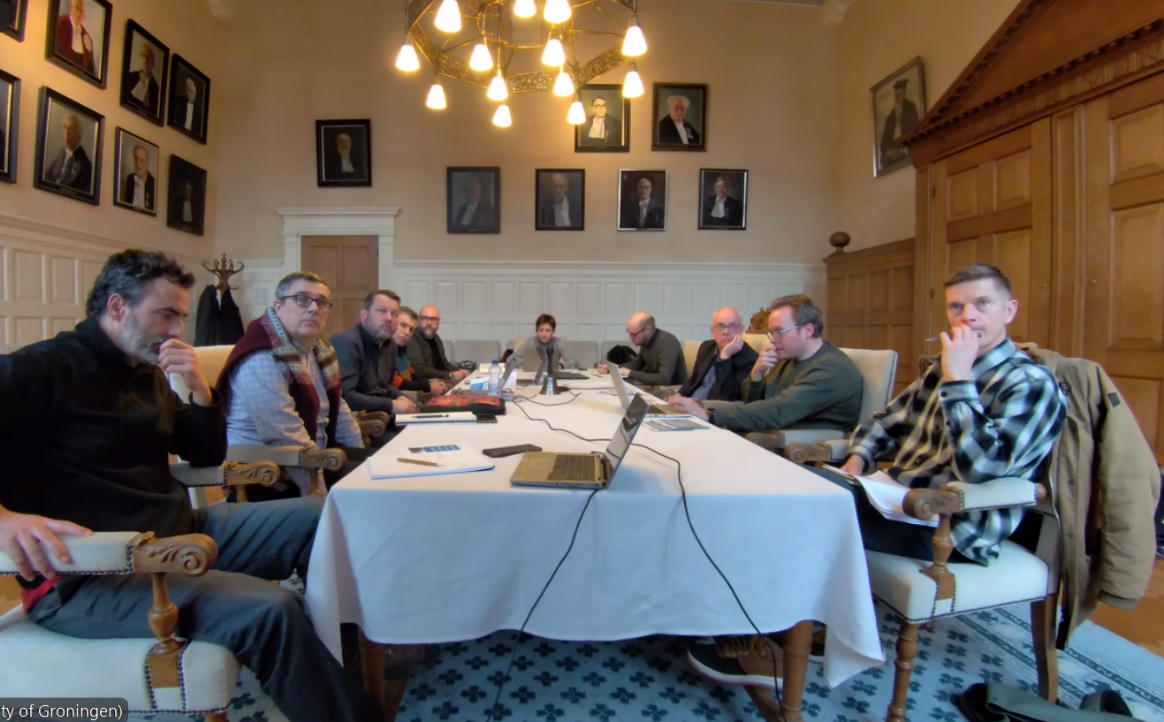The DEF-SSCC Project is one of the ENLIGHT 2024 Call Winners!

We’re excited to announce that the DEF-SSCC Project, with a team at the UG, has been selected as one of the 2024 ENLIGHT Call winners! This project will be creating a joint bachelors degree focused on smart, sustainable cities and involves collaborating closely with a few of our partner universities.
What is the DEF-SSCC Project?
Together with the University of the Basque Country, Uppsala University and Comenius University, the RUG is involved in investigating the development of a joint degree bachelor program on Smart and Sustainable Cities and Communities. The project outputs include three developed Blended Intensive Program courses and concrete advice on the feasibility and possible pathways to develop a joined bachelor degree.
Why this project?
The Faculty of Spatial Sciences values international teaching programs as these allow students to engage across borders and cultures with key societal challenges. In addition, the importance of bridging important technological developments and innovations with the urban environments and communities living in them is a key priority. The foreseen bachelor is intended to help educate future city and community developers to utilize technology for pursuing a socially inclusive transformation to sustainability. As such, it touches the core of both the research and educational visions of the Faculty, which highlights making places better together while pursuing socially meaningful sustainability transformations.
Why is this collaboration important?
The partner universities offer a broad and complementary set of skills and experiences, including architecture, urban design, computer sciences, social anthropology, urban health and urban planning. In addition, they offer a wide variety of European contexts that shape the possibilities and constraints when pursuing urban sustainability. This combination allows for the development of a true interdisciplinary program able to tap into a large variety of actual cases and conditions that will ultimately be beneficial to the students.
How did the collaboration start?
Within the ENLIGHT Core Group on Energy and Circular Economy these Universities communicated about potential attractive developments and initiatives. The University of the Basque Country, supported by its regional government, put forward the initiative to work on smart and sustainable cities. After the joining of the other partner universities, this initiative was expanded to include communities. As the partners recognized that the initiative would require a significant innovation, not just substantively, but notably administratively, they opted for an incubator call to create the time and travel possibilities to work collectively on this.
What will be the impact of this project for the University of Groningen?
The three Blended Intensive Programs will be an immediate and feasible outcome that will allow students of the University of Groningen to engage in interdisciplinary and international courses. In addition, the process of developing a joint bachelor degree will at least provide an important testing and learning environment to identify key administrative challenges and how these may be navigated. As such, the initiative will also provide input for possible future initiatives that aim for similar programs. If a joint bachelor is feasible and developed, a final benefit is both an inflow of motivated and interdisciplinary students into the University of Groningen and an attractive offer to prospective University of Groningen students to follow an international and interdisciplinary program.
What is the connection to other projects?
Several ongoing and recent research projects closely align with these initiatives, including the EU Horizon projects RECOMMS, Making City, and 2ISECAP. Additionally, current investments aimed at enhancing the technical profile of the Bachelor's program in Spatial Planning and Design are a perfect fit. Lastly, the Faculty of Spatial Sciences has a strong commitment to collaborating with social partners locally and internationally, perfectly aligning with the program’s challenge-based approach.
The Future Vision
The core focus is to use the development of the Blended Intensive Programs (BIPs) as stepping stones for a joint Bachelor degree. While doing so, an intermediate aim is for all Universities to use these BIPs in combination with a set of courses to offer 30 ECTS Minors that are also open to the students of all other involved Universities. These minors – when combined – could become the core of a future joined bachelor degree. As these options are viable and feasible within a relatively short term, they allow the involved Universities to invest time and effort to identify how a possible joined degree might administratively become viable, while strengthening the relationship and collaboration between the member institutions.
The team at UG:
-
Prof. dr. Christian Zuidema, Member of the Advisory Council of the Groninger Energiekoepel, Associate Professor at the department of Spatial Planning and Environment
-
Dr. Erik Meijles, Director of Education and Associate Professor Landscape Geography at the Faculty of Spatial Sciences
-
Drs. Chris Diederiks Hobéon Geography expert for a number of teacher education accreditations, International Office at Faculty of Spatial Sciences
We are happy for the DEF-SSCC team and are excited for the outcomes of this project!
| Last modified: | 05 March 2025 1.28 p.m. |
More news
-
24 March 2025
UG 28th in World's Most International Universities 2025 rankings
The University of Groningen has been ranked 28th in the World's Most International Universities 2025 by Times Higher Education. With this, the UG leaves behind institutions such as MIT and Harvard. The 28th place marks an increase of five places: in...
-
05 March 2025
Women in Science
The UG celebrates International Women’s Day with a special photo series: Women in Science.
-
16 December 2024
Jouke de Vries: ‘The University will have to be flexible’
2024 was a festive year for the University of Groningen. In this podcast, Jouke de Vries, the chair of the Executive Board, looks back.
